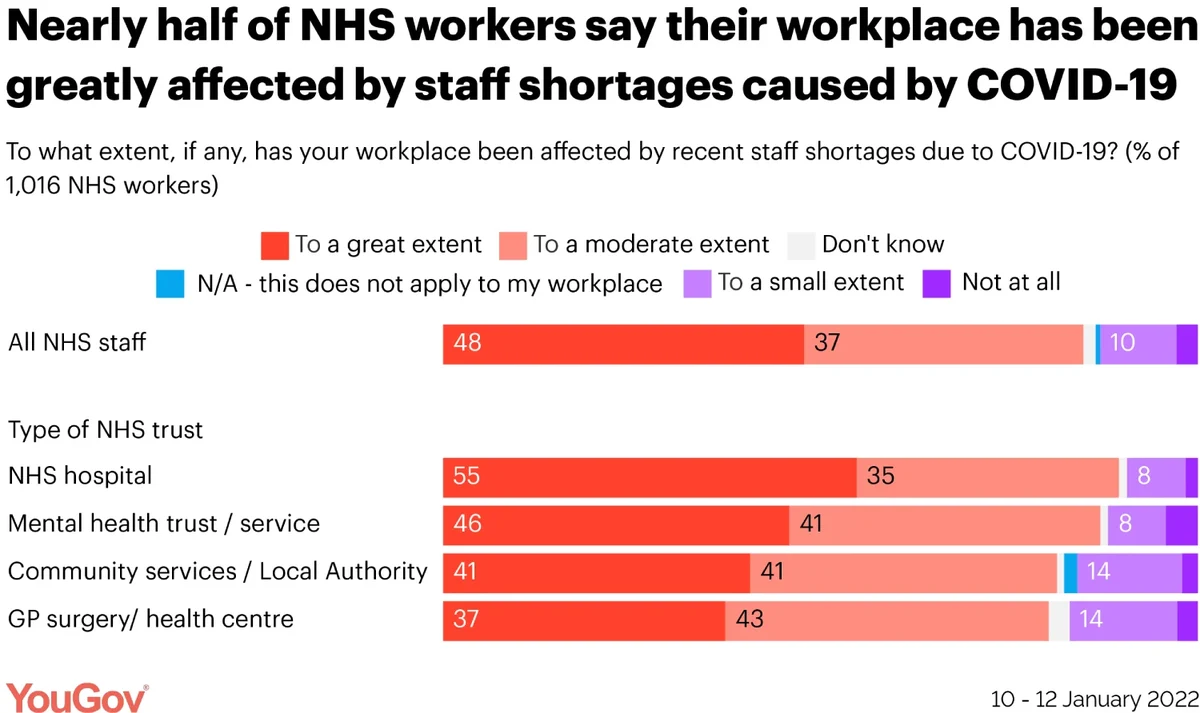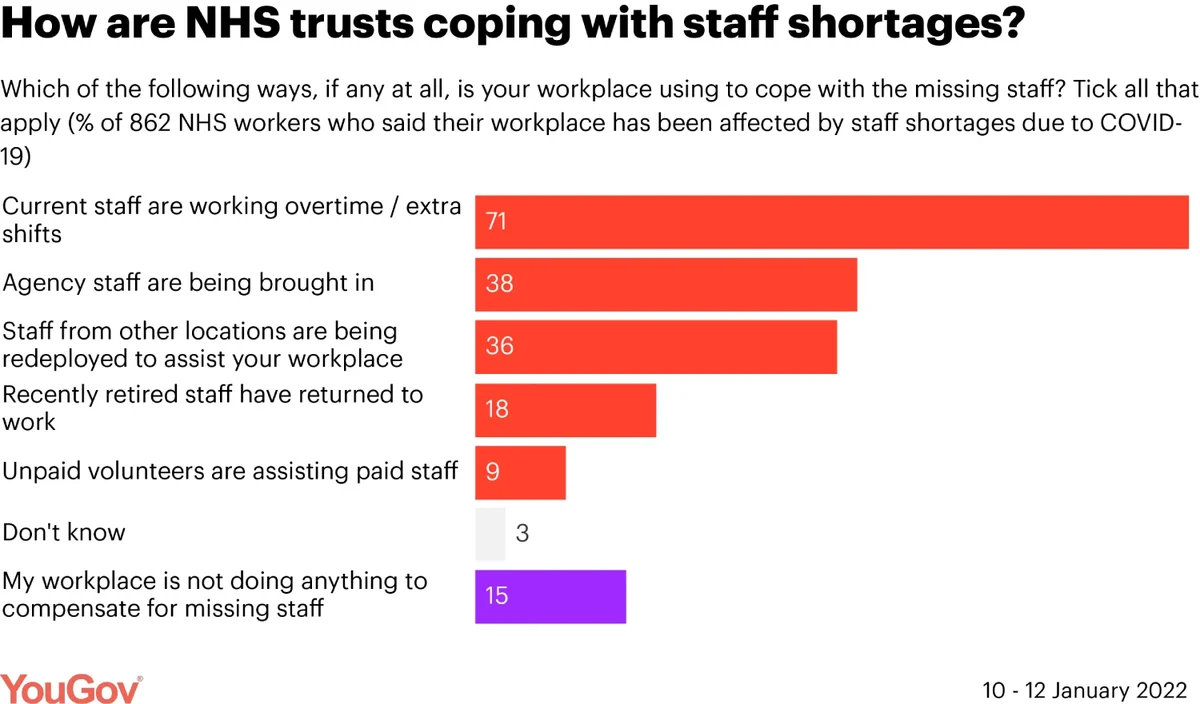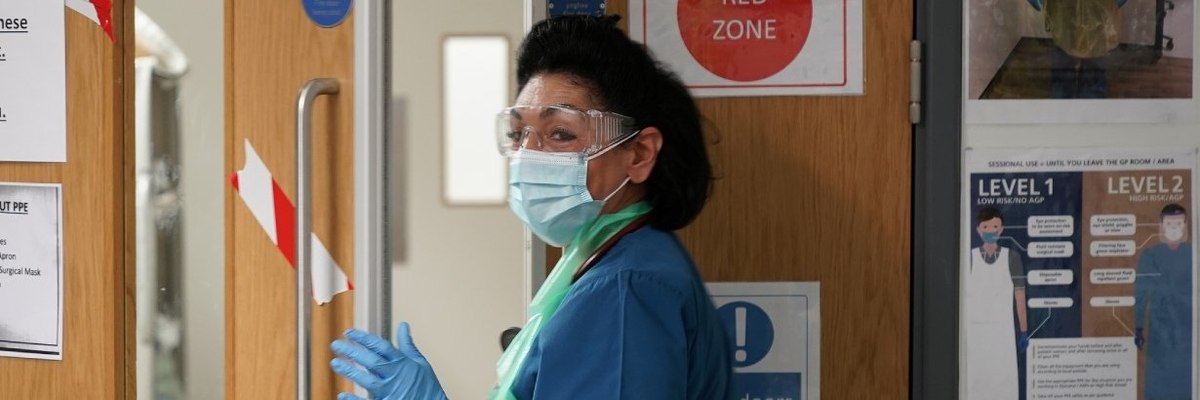Nearly half say staff shortages have “greatly” affected their workplace
As Boris Johnson and Sajid Javid press on with plans to roll back COVID-19 restrictions, the NHS remains amidst a staffing crisis. While the numbers of staff absent due to COVID-19 have begun to fall in recent days, around 35,000 members of NHS staff remain off work each day due to COVID-19. This compares to around 12,000 off as a result of the virus at the start of December 2021.
Now, a new YouGov survey of healthcare professionals reveals that 95% of NHS staff say their workplace has been affected by staff shortages due to COVID-19 recently. This includes nearly half (48%) who say their workplace has been affected to a “great” extent and 37% affected to a “moderate” extent. A mere 3% say they haven’t been affected by recent shortages.

While the vast majority of staff working across all types of trust say they have been affected, those working in NHS hospitals are the most likely to say they have been ‘greatly’ impacted (55%). This compares to 37% of those in GP surgeries and health centres who say the same.
Despite shortages easing somewhat, it was only two weeks ago that members of the armed forces were deployed to assist London NHS trusts hard-hit by COVID-19. Some 48% of NHS workers in London report that their workplace has been “greatly” affected, however, this figure is highest among NHS workers in the North of England (55%).
How is the NHS coping with staff shortages?
Some 71% of NHS staff whose workplace has been affected by staff shortages say that current staff are working overtime or extra shifts to make up the missing hours. This figure rises to nearly four in five (79%) among nurses and midwives.
Additionally, 38% of staff say their workplace is bringing in agency staff to cope with shortages, and a similar amount (36%) say staff are being redeployed from nearby locations to assist.
Some 18% say recently retired staff have returned to work to help plug the gap. A further 9% say their workplace is using volunteers to fill posts.








